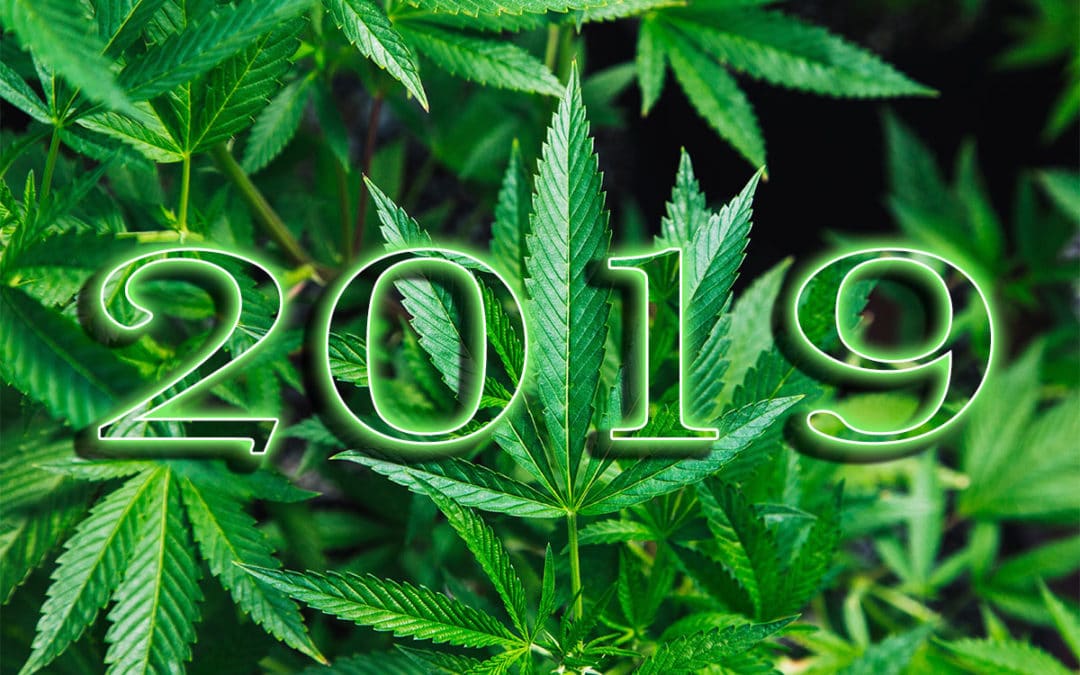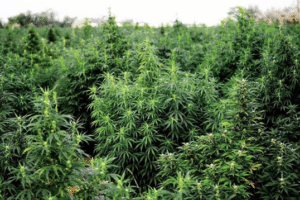
New Year, New Industry

2018 was a big year for the cannabis industry. 2019 is poised to change the industry even more.
The cannabis industry grew on a global scale in 2018. Not just in the United States, but around the world. More places are starting to accept cannabis as medicine and recreation, with even more planning to get on board in 2019.
While there are plenty of small or local changes to cannabis in the US, here some of the biggest changes in the cannabis industry that came in 2018.
Canada Legalization

Canada legalization of cannabis was a major victory for the industry in 2018. The government of Canada legalized the recreational use of cannabis across the entire country, with local governments still being able to limit the law.
However compared to legalization within some states of the United States, Canada legalization is run entirely by the government instead of private businesses. All licensed grows, manufacturers and retailers are government run. This has had a split impact on the industry as a whole in Canada.
While access to cannabis has become much easier — consumers can order cannabis online, for delivery, directly from a government website — supply currently cannot meet demand, causing backorders, long delays, moldy and stale product, and other problems.
The biggest problem Canada legalization has adversely caused is an increased use of the private market. If they government can’t supply its people but says it can be the only source, people will go to the private market to get the products they want without the long delay and risk of bad product.
Farm Bill and Industrial Hemp

At the end of December 2018, Donald Trump surprisingly signed the Farm Bill of 2018, also known as the Agriculture Improvement Act of 2018. Among many other adjustments to the agricultural industries in the US, the farm bill also separated the definition of industrial hemp to be different from that of cannabis.
Before the bill was signed, hemp and cannabis were under the same definition, with a sub-definition of hemp being any part of the cannabis plant with less than .3% THC. However, as sub-definition, it was still considered a Schedule 1 narcotic under the Controlled Substances Act of 1970.
The farm bill separated industrial hemp from the traditional cannabis definition, and created a federal definition of industrial hemp, being the same definition as before, but off of the controlled substances list. This has opened up the possibility for a massive hemp and CBD industry to develop.
While it’s too soon to say where the industry is headed — it will most likely be a year before the new bill takes full effect — the Farm Bill and legalization of industrial hemp means big things for the future of the cannabis industry.
First Year of California Legalization

California has a population with over 10 million more people than the second place contender, Texas. It was expected for the legalization of cannabis in California to expand the already developed marketplace in the state to great new bounds. However the new laws in place have had almost the opposite effect.
The cannabis marketplace in California was already the biggest in the country, despite the majority of growth occurring in the private market. It was inevitable, then, that the new, legal market would work its hardest to eradicate this competition.
Extremely limited licenses available to the highest bidder resulted in hundreds of farms and private operations having to shut down, simply by not being able to afford a legal license. This was the case for a large portion of the cannabis community in California, opening up the door for larger companies with more capital interests to enter the market.
With the biggest companies buying as many licenses as possible, the OGs of the industry are left with little options. Either continue to operate in the private market and hope to get a license before getting caught, or leave the industry in California.
It’s been a tough year for a thousands of growers across California, and 2019 most likely won’t prove to be much different. Despite its flaws however, California will still be a huge legal cannabis marketplace, and most likely surpass all other states, with the end result being the eradication of the private market entirely in the state.
An Eventful Year
2018 was a year full of surprises. Colorado passing Amendment X, The Farm Bill, California’s industry revelations and more. This year had its ups and downs, it’s issues that split the community, but overall the industry is in a better place than it was a year ago.
More states have legalized both recreationally and medicinally, cannabis is more acceptable in social culture than ever before, and more people are learning about the lies they were told during the drug war movement. Some are already saying 2019 will be the year of weed, while others think the bubble is bound to burst any day now.
We’ll just wait and see what’s in store for cannabis in 2019!











